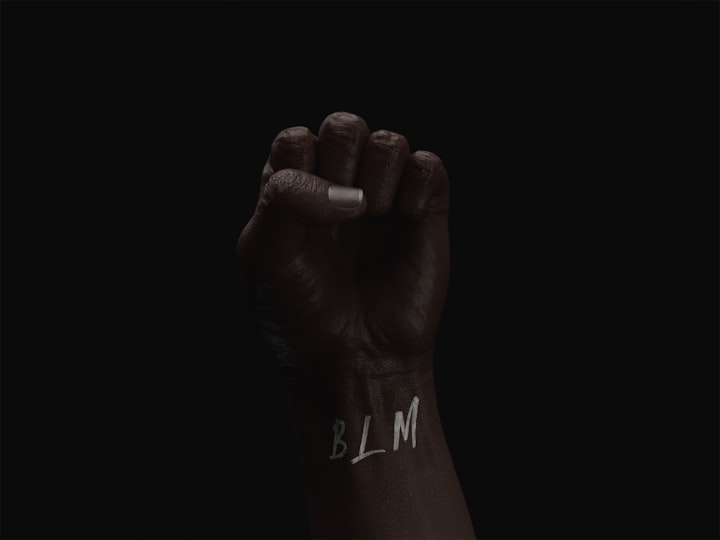The Controversial History Debate
High School students should have the right to learn about controversial topics objectively

America has a dark history. Any scholar of the past would most likely agree with how the country came to be. Of course, the hard fought battle against Britain may be reason to celebrate the birth of the nation because it quickly became one of the most influential countries on the planet. However, it still remains a country built on stolen land and prospered off the backs of enslaved souls.
When the transatlantic travelers of the early 17th century arrived to the east coast of America, they gradually grew their settlement into a nation by pushing their indigenous neighbors off the land and further west. As states began to form, laws were enacted which benefited the European immigrants, but restricted Native Americans to the land. As the country grew, Native American tribes began to diminish; many were forced to either assimilate or be outcasted for trying to protect their culture. These political policy was enforced until 1946, when modern American lawmakers recognized the error of progress and offered reparations for many Native American tribes. Sadly, it will never replace the native tribes who have lost their home, culture, and indigenous way of life.
Meanwhile, in the developing southern territories of a new nation, the construction of plantations for profit began. Plantation owners needed a constant workforce to maintain their vast acres of farmland. Cargo ships kidnapped many Africans from their homeland and brought them to America to work on these plantations. They were treated like commodities for trade. These dark skinned people were not paid for their work and were considered a piece of property for many of the plantation owners; sold to the highest bidder and forced to reside in unfavorable conditions. Those fortunate enough to escape, fled North to where they would be treated respectfully. Once Abraham Lincoln took presidency, the slaves were freed, but were immediately identified as low class citizens in comparison to their fairer skinned counterparts. Segregation laws kept many residential areas, social services, and education separate based on race. America remained segregated until after the civil rights movement when the federal government worked to provide equality for all citizens regardless of race by passing the Civil Rights Act of 1964.
This is just a brief overview of the dark history of America. Through the development of equal human rights, there are many policies that have been put into place depending on the state a person resides in. These policies were the created based on the perception of the state’s legislation at that particulate time. In order to fully understand this portion of American history and probe deeper, one needs to enroll in an academic course which focuses on racial injustice. The course needs to be taught in a manner that allows the students to determine which moral direction they want to move towards in regards to human rights. Enter Ron DeSantis.
The current Florida Governor and Republican presidential candidate is currently creating controversy over Florida’s education system. The root cause of this controversy: an AP African American Studies course. According to Politico, DeSantis has an issue with the final unit of the course which covers Black Lives Matter, incarceration, and activism. He claims the course is an indoctrination of a political agenda and not truly focusing on historical facts.
The final unit of the AP course needs to be taught, especially in more conservative states. First, Black Lives Matter (BLM) began to put a spotlight on racial injustice that presents itself often within the police system. Many police officers tend to stop black citizens more than other racial groups. Black residents are usually subjected to negative profiling because of America’s history. Secondly, black males are more likely to face incarceration because of America’s dark history. The idea of negative racial profiling began during slavery and was enhanced with the development of motion pictures. Black people may be free from slavery, but many are still treated like second class citizens today. This was the purpose of BLM, to raise awareness of these injustices in hopes of leveling the social playing field for black citizens.
Animosity towards the course continues to remain strong because many conservatives consider it “woke culture.” Woke culture is simply bringing awareness to human indecency in social settings and racial inequality. However, the AP African American Studies course is solely focusing on: Black history. Furthermore, it’s an elective course, meaning… students are not required to enroll in the class. Students and parents are allowed to review the discussion topics to determine if they want to enroll or not. High school students, the future of America, should be allowed to take the course, if they are interested in it and have the aptitude to learn about controversial social topics. To deny one education is to foster ignorance. Schools which do plan to provided controversial courses like the one in Florida, only need to ensure the instructor can teach the course objectively and allow the students to make their own decision, in hopes they become a better human.
About the Creator
Iris Harris
An aspiring novelist. I enjoy writing ghost, horror, and drama. Occassionally, I dabble with some essays. You can find more of my work with the link below:






Comments (1)
Very well said.